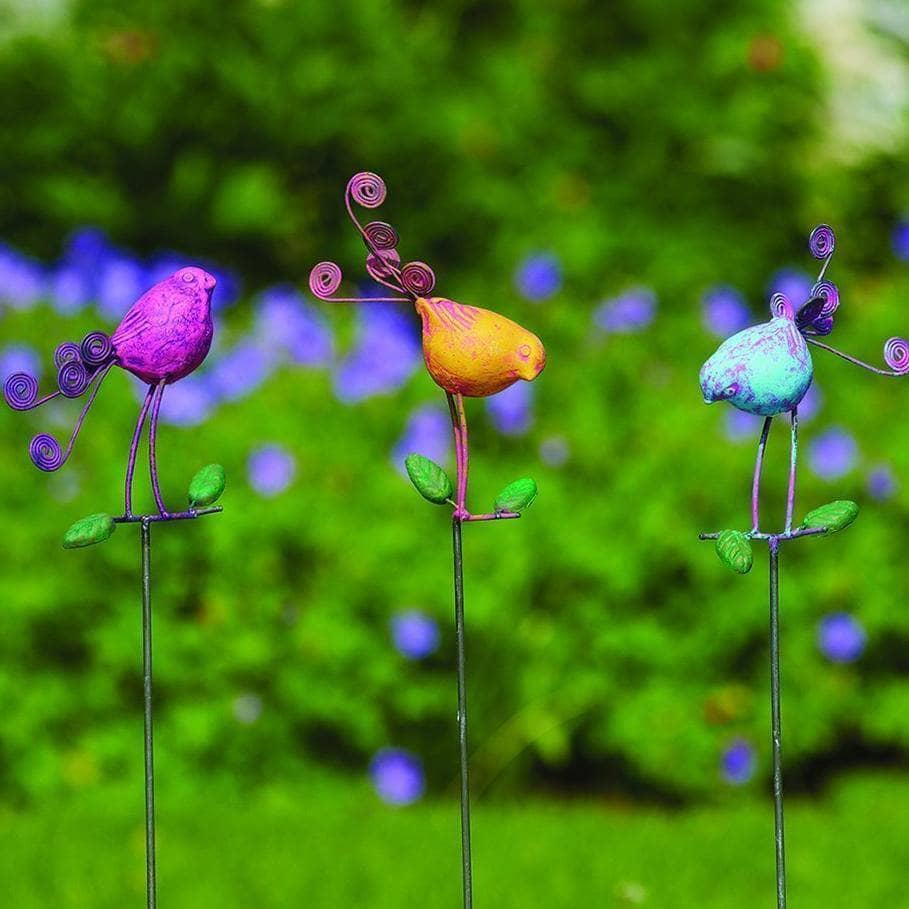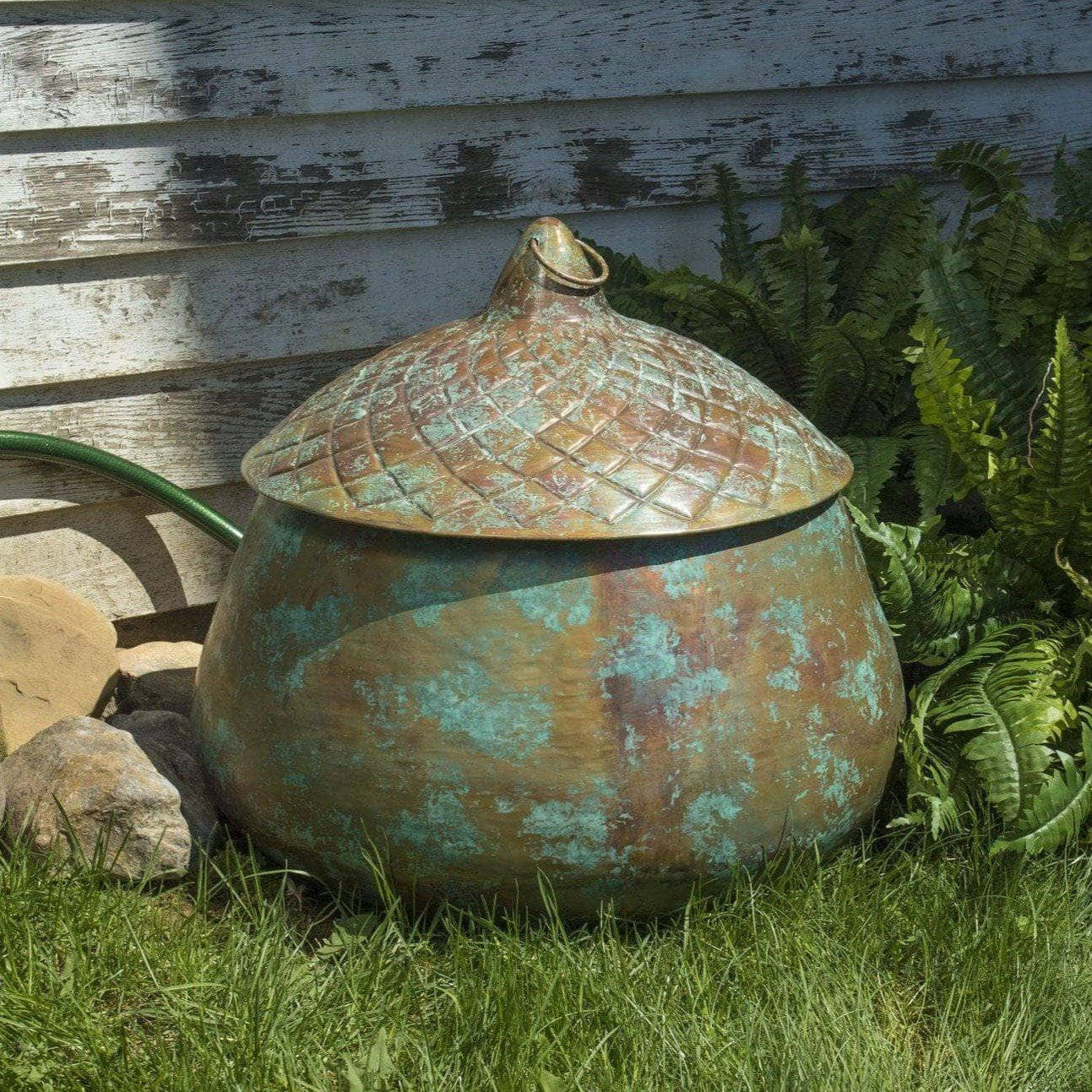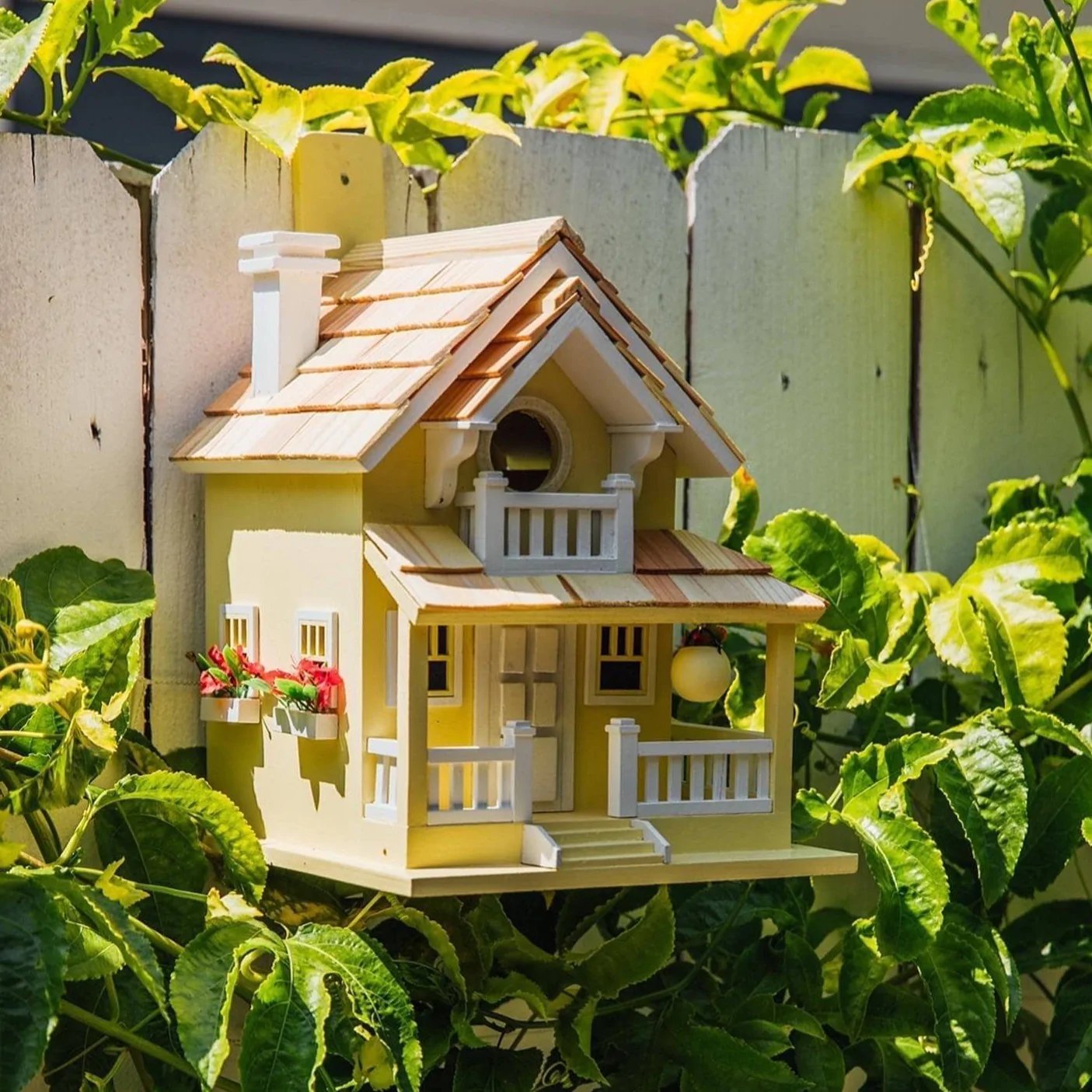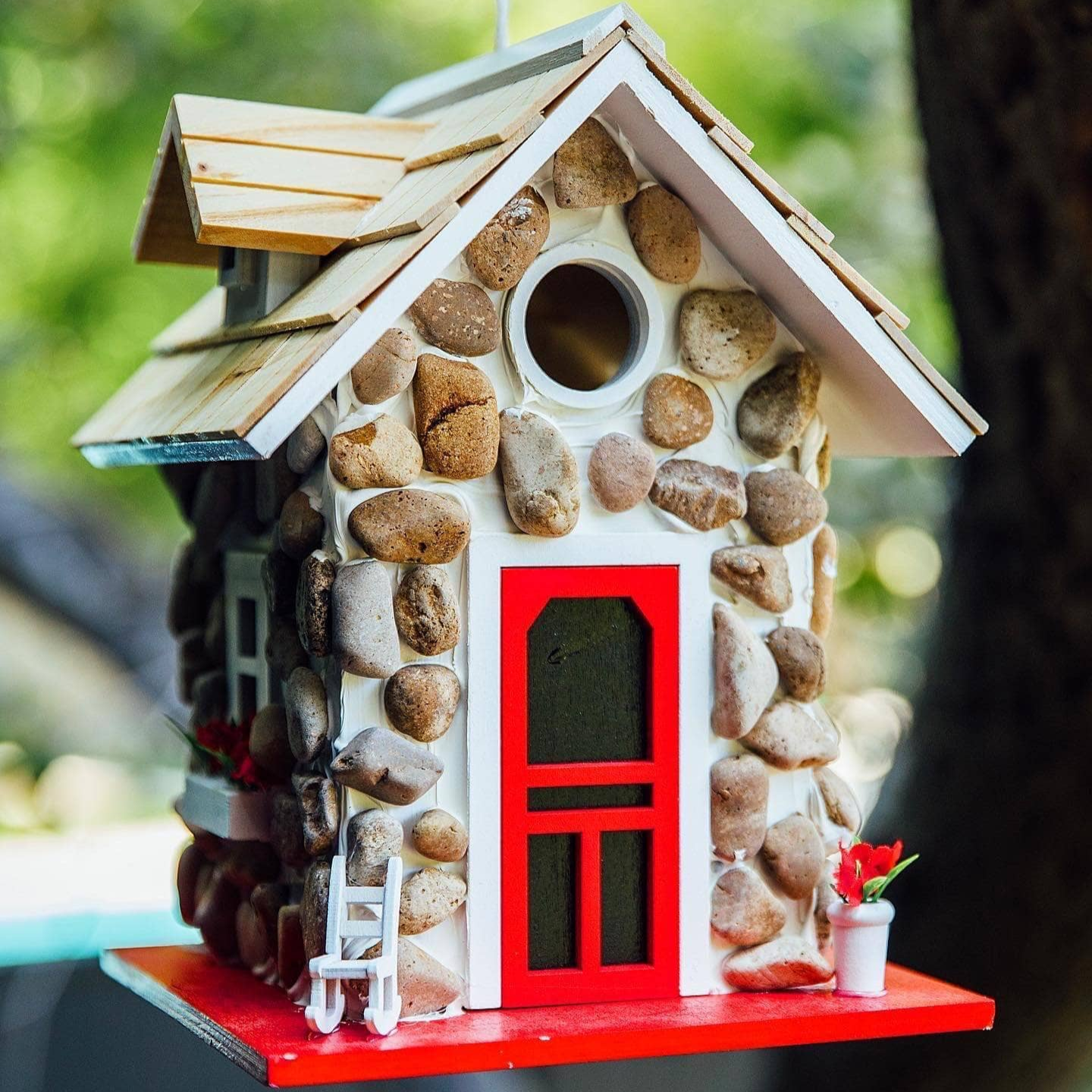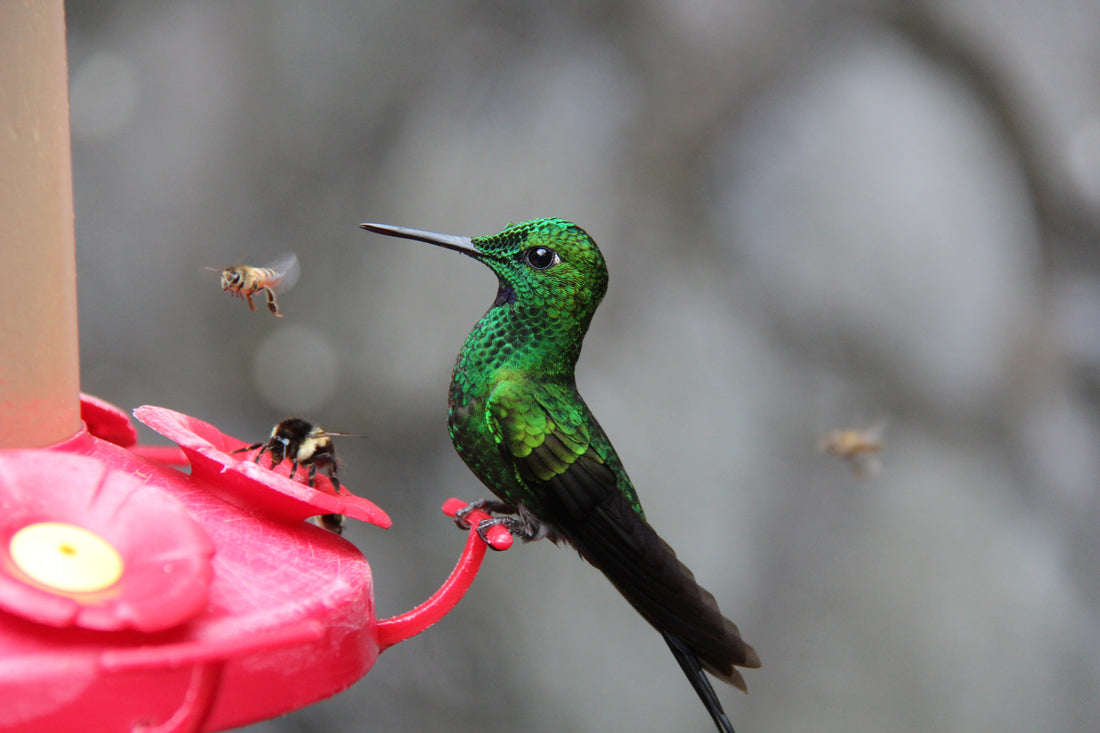
Best Way To Keep Bees Away From A Hummingbird Feeder
Share
Tired of watching those bees in your backyard hog all the nectar you were hoping would attract gorgeous hummingbirds to your hummingbird feeders? The good news is that there are tons of ways to keep bees away from hummingbird feeders. In this article, we'll zero in on some of the most proven strategies for repelling those bees, so you can get back to focusing on the birds.
Key Takeaways
- Hummingbirds and bees both love nectar, so it's no surprise that more than a few bees have made themselves at home near your bird feeder. Fortunately, there are tons of totally safe ways to encourage them to swarm elsewhere.
- If you have a bee problem near your hummingbird feeder, select an inverted hummingbird feeder in a color that isn't yellow, and consider relocating it to a shadier spot.
- You can also attract bees to another part of your backyard by building a nectar-rich, bright, and perfectly distracting flower garden for honey bees.
- Never use a pesticide, insecticide, petroleum jelly, or another sticky substance to keep bees away from hummingbird feeders. These strategies are neither safe nor humane.
How to Keep Bees Away From Hummingbird Feeders Naturally
First and foremost, we want to encourage you to use natural, earth-friendly strategies to keep bees out of your hummingbird feeders. That's why the bulk of this article will focus on friendly prevention strategies that simply encourage bees to go elsewhere--not hurt or harm them.
Remember, hummingbirds are lovely and adorable, but bees are really important to our planet's ecosystem. We rely on them to pollinate our plants, and keeping them safe is very important. Whenever you attempt to repel bees, ensure you are simply asking them to congregate elsewhere, not disappear altogether. After all, we need them!
1. Choose a Saucer Type of Hummingbird Feeder Instead of One With an Inverted Design
If you still need to purchase a hummingbird feeder, you can ward off swarming bees before they become a problem simply by selecting the right kind of bird feeder. Some feeders are more bee-friendly than others, so when you are shopping for a feeder, look for one that features long narrow tubes. This style of bird feeder makes access challenging for most bees.
Another recommendation is to choose a feeder that comes with bee guards or ports that automatically shut when weight is applied. These safeguards should also prevent bees from accessing nectar that's only supposed to be enjoyed b your feathered friends.
Related: Should You Change Your Hummingbird Feeder Often?
2. Provide Alternative Snack Selections for Honey Bees
You didn't install hummingbird feeders to attract bees. But, instead of worrying about the bees stealing your hummingbirds' food, you could consider providing an alternative food source for the bees.
We recommend planting nectar rich flowers like sunflowers, lavender, and marigolds. To make those plants even more attractive to honey bees, consider adding a small dish of sugar water or syrup near the plants or in a different location entirely. No matter where you put it, it can help bees swarm elsewhere--so your hummingbirds can dine in peace.
3. Keep Your Hummingbird Feeder Clean
It's no secret that bees are attracted to sticky, sweet substances, just like the nectar you've provided for your hummingbirds. So when that nectar starts to stick to the outside of the feeding ports, you're more likely to deal with bees and other unwanted insects, such as yellow jackets.
Our best advice? Keep that hummingbird feeder clean! If possible, schedule a weekly cleaning that's truly thorough. You can use a solution of hot water and white vinegar as long as the manufacturer of your hummingbird feeder's cleaning instructions doesn't indicate differently. Once you've cleaned it out, rinse the feeder well and ensure it is completely dry before you refill it with fresh hummingbird nectar.
4. Check Feeder for Leaks
When you clean out your hummingbird feeder, you should also take care to inspect for any cracks or leaks. Remember, if your feeding ports or any other element of the nectar feeder are not perfectly air-tight, you're almost certainly going to be dealing with some level of leakage. And that means more sweet nectar sure to attract bees and wasps.
Double-check all bee guards, feeding ports, and all other feeder parts regularly.
5. Avoid Feeders with Yellow Inserts
Another solid piece of advice? Avoiding nectar feeders that feature yellow inserts. Hummingbird feeders with yellow inserts attract because--no surprise here--bees and other insects are evolutionarily drawn to the color yellow. Like many other bright colors, yellow often indicates blooming, nectar-rich, flowering plants. So when a bee or another insect who is attracted to nectar catches a glimpse of that pop of yellow, they might buzz over to investigate further. And while they're there, you can bet they're going to help themselves to some free lunch.
6. Hang the Hummingbird Feeder in the Shade
If you've bought the right nectar feeder, made sure it's clean and free of leaks, and set out other snacks for those pesky insects, only to still be dealing with way too many bees visiting, don't despair. Your next move should be to relocate the hummingbird feeder to a shadier area. Some people hang their hummingbird feeders under trees, where they are far away from flowers and receive natural shade. You can also consult our 101 Guide to Hanging Hummingbird Feeders.
We recommend this because bees are attracted to bright colors, and placing the nectar feeder in a shadier spot can dull the colors of all nectar feeders. To deter bees and wasps further, move the feeder away from flowering plants where bees are already buzzing about.
Related: Have You Ever Wondered Where Hummingbirds Live?
7. Deter Unwanted Bees with Vinegar
Are you still dealing with unwanted insect visitors? It might be time to consider a better way to deter insects from visiting your hummingbirds' food source. One safe option is spraying a completely-safe water and vinegar mixture in a spray bottle. The vinegar scent is unappealing to bees, which could help keep them away from your existing feeders.
8. Or Keep Bees Away with Citrus
Is vinegar not in the cards? You can always try citrus instead. Since many bees are sensitive to the scent of citrus, you can try rubbing lemon or orange peel around your hummingbird feeder as a natural repellent against unwanted insects.
You could also cut up citrus fruit and place it near the feeder, but then you might end up with an ant problem instead!
9. Distract Bees With a Pollinator Garden
Sure, you wanted to attract hummingbirds to your outdoor space. But what if you dedicated an area that naturally attracted bees? If you're serious about keeping bees away from hummingbird feeders, then building a garden full of blooming flowers ripe with natural nectar could be the answer. After all, this garden attracts bees--and if they're satisfied in your flower beds, they won't need to mess with your hummingbird feeders.
That's especially true if you've already safeguarded them by implementing some or all of the tips and tricks mentioned above.
10. Install a Decoy Feeder
Your next option is installing a decoy feeder to attract insects to a different food source. Essentially, what you'll be doing is filling another feeder with a liquid that is more appealing to bees than the sugar water you've poured into your hummingbird feeders. Simply by offering this alternative meal to your backyard's bee population, you'll likely encourage them to eat their breakfast, lunch, and dinner elsewhere.
In general, bees prefer a lower concentration of sugar in their food, so fill your decoy feeder with a sugar water solution that has way less sugar than what you're providing to your hummingbirds. You can also use fruit juice or honey water, both of which are naturally attractive to bees.
Place your decoy feeder at least 10 feet away from hummingbird feeders. And, just like your regular hummingbird feeders, you'll need to keep these decoy feeders clean and safe. This will help you avoid spoiled nectar--and keep other insects or animals from swarming your decoy feeder. (Because the last thing you need is another crowd of unwanted visitors, right?)
11. Try Essential Oils
You already know that bees love the smell of flowers and nectar. But there are some scents that are really great at repelling bees, too. When used correctly, certain essential oils can give off a scent that helps keep bees away from hummingbird feeders.
The most proven essential oils to keep bees away from your hummingbird nectar are:
- Peppermint oil
- Eucalyptus oil
- Tea tree oil
To deter bees, simply add a few drops of any of these essential oils to a cotton ball or paper towel, then place it near the feeder. You can also create a spray diluted with water and the essential oil of your choice and spray it around the hummingbird feeder.
2 Things You Should Never Do to Keep Bees Out of Your Hummingbird Feeders
Nobody wants bees in their hummingbird feeder. But going to extreme, dangerous measures to repel insects from your feeder is never okay. Bees are an important part of our world and play an essential, irreplaceable role as pollinators in our ecosystem. We want to encourage them to congregate elsewhere--not do them harm.
1. Don't spray insecticides and pesticides
It goes without saying that any spray or solution designed to harm or kill bees should not be used. These insecticides and pesticides can harm both bees and hummingbirds alike.
2. Don't use petroleum jelly
Another no-no? Petroleum jelly or any other sticky substance. While some people might tell you to spread these products on a feeding port to keep insects away from hummingbird nectar, this can cause harm to hummingbirds. In fact, it's common for petroleum jelly and other sticky substances to get stuck in hummingbird feathers. And that makes it harder for hummingbirds to groom themselves or fly away from danger.
Frequently Asked Questions
What is a nectar guard?
A nectar guard is a small, plastic device that can be attached to hummingbird feeders to help keep bees (and other insects) from accessing the hummingbird nectar. The device is essentially two parts: a small, plastic cap that fits over the feeding port of the hummingbird feeder and a small, plastic flap that allows a hummingbird's long beak to access nectar but prevents insects from entering the passageway.
You can buy nectar guards (sometimes called bee guards) separately from hummingbird feeders and add them to your feeder if and when necessary. Bee guards are considered both effective and humane, making them an excellent choice for keeping bees out of your hummingbird feeders.
Moreover, nectar guards can also prevent nectar leakage, waste, and spoilage.
Do keep in mind that nectar guards aren't always the solution. Some insects are smart enough to work around them, and some hummingbirds might forgo snacking at your bird feeder if you install the guards or at least need some time to figure out how they work.
The most important of all the nectar guard tips is trying out other bee-repellant strategies alongside nectar guards. In fact, we don't even recommend starting to address bee swarms with nectar guards. Instead, try to create other attractions and diversions for bees and other insects, then test out nectar guards as a secondary measure, if necessary.
Are hummingbirds afraid of bees?
Hummingbirds aren't terrified of bees, but a swarm of bees or other insects will probably discourage those hummingbirds from congregating in the area.
Do bees and hummingbirds eat the same thing?
Bees and hummingbirds don't have the exact same diet, but they will compete for food sources in many scenarios. And, chances are, that's what's happening in your backyard. After all, both creatures love nectar from flowers and hummingbird feeders.
Bees prefer to feed on nectar and pollen in flowers. They collect nectar from flowers using their long, unique tongues. As they feed, they end up transferring pollen from one flower to the next, helping to pollinate plants and promote beautiful, blooming growth all over the world. (This is one of the many, many reasons why we never want to do honey bees any harm!)
Hummingbirds use their long beaks to feed on nectar, and while they love a good meal from a flower, they're happy to drink from a hummingbird feeder, too. But, as noted before, bees actually prefer less concentrated, less sugary nectar, so if you're creating a decoy feeder for bees, make sure it's less sugary.
What's a bee feeding station?
A bee feeding station is a perfect way to provide a food source for bees in your backyard. Traditionally, a bee feeding station is in an outdoor area and is used to supplement natural food sources like flowers, including marigolds and bee balm.
Usually, a bee feeding station includes a feeder or dispenser that holds sugar water or honey water. You can buy these commercially or even build your own. Some of these bee feeding stations may include protective barriers or guards to keep other insects, including ants and wasps, and yellow jackets, away from the bee feeder.
Generally, a bee feeding station can be a solid addition to your flower garden. The more attractive you make alternative feeding areas for bees, the less likely they are to swarm your saucer feeders and scare your beloved hummingbirds away.
Note that a bee feeding station is not dissimilar from a decoy feeder.
About Happy Gardens
Happy Gardens is a top-rated, family-owned garden decor shop. We offer stunning, handcrafted pieces of garden decor guaranteed to add instant charm to your outdoor space. From rain gauges to birdhouses, there's no shortage of unique, remarkable items handpicked by our team to transform your garden and yard. Feel free to browse our collections and find that perfect something for you or a loved one today.
Across our collections, we feature tons of handcrafted products that showcase both honey bees and hummingbirds. We also have an assortment of hummingbird feeders perfect for encouraging even more feathered friends to stop by your backyard, have a bite to eat, and stay a while.
Whether you're searching for a housewarming present, a holiday gift, or a little something to jazz up your own garden or outdoor space, you've come to the right place. If you need any help or have any questions at all, our team is always here to help via email or chat.
